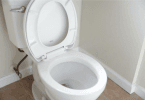In an ideal world, dining out at restaurants would always be a delightful experience. However, there are times when things don’t go as planned, and you suspect that the food you just consumed might be the culprit behind an unpleasant bout of food poisoning. When faced with such a situation, it’s crucial to take immediate steps to address the issue and safeguard your health. In this article, we will walk you through a series of steps to follow if you ever find yourself suspecting food poisoning after dining at a restaurant.
Contents
Identifying the Symptoms
Recognizing the Signs
The first step in addressing suspected food poisoning is identifying the symptoms. These can include nausea, vomiting, diarrhea, abdominal pain, and fever. The onset of symptoms can vary, but they often appear within hours of consuming contaminated food.
Monitor Your Condition
After suspecting food poisoning, it’s essential to monitor your condition closely. Take note of the severity and duration of your symptoms. This information will be helpful in case you need to seek medical attention.
Immediate Actions
Stay Hydrated
Dehydration is a common consequence of food poisoning due to frequent vomiting and diarrhea. It’s crucial to stay hydrated. Drink clear fluids like water, clear broths, or oral rehydration solutions to replenish lost fluids and electrolytes.
Avoid Self-Medication
While you might be tempted to take over-the-counter medications, it’s essential to consult a healthcare professional before doing so. Self-medication can sometimes worsen the condition or mask the symptoms.
Isolate the Suspected Food
If you have any leftovers from your meal, isolate them in a sealed container. This can be helpful for identifying the source of contamination later, if necessary. In a legal case, demonstrating how to prove food poisoning from a restaurant often involves presenting evidence such as medical records, eyewitness accounts, and potentially even laboratory testing results linking the illness to the specific establishment.
Reporting the Incident
Contact the Restaurant
After suspecting food poisoning, get in touch with the restaurant where you dined. Explain your situation, the symptoms you’re experiencing, and the date and time of your visit. This step is essential for both your own health and for alerting the restaurant to a potential issue.
Notify Health Authorities
If you believe your food poisoning is connected to a larger outbreak, consider reporting it to your local health department. They can investigate and prevent further cases.
Seeking Medical Attention
Visit a Healthcare Provider
If your symptoms are severe or prolonged, or if you belong to a high-risk group (such as pregnant women, infants, or the elderly), seek medical attention promptly. A healthcare provider can diagnose and treat your condition effectively.
Provide Details
When visiting a healthcare provider, be prepared to provide detailed information about your symptoms, the suspected food, and your medical history. This information will help with the diagnosis and treatment plan.
Recovery and Prevention
Follow Medical Advice
If you receive medical treatment, adhere to the prescribed medications and recommendations for recovery. Follow dietary restrictions and activity limitations if advised.
Strengthen Your Immune System
After recovering, it’s essential to strengthen your immune system through a balanced diet, exercise, and proper hygiene practices to reduce the risk of future food poisoning incidents.
Preventative Measures
Learn from your experience and take preventative measures, such as researching restaurant reviews and food safety records, when dining out in the future.
Conclusion
Suspecting food poisoning after dining at a restaurant can be a distressing experience, but following the right steps can make all the difference in your recovery. By recognizing the symptoms, taking immediate action, reporting the incident, seeking medical attention when necessary, and focusing on recovery and prevention, you can ensure a safer dining experience in the future.
Frequently Asked Questions (FAQs)
How long does it take for food poisoning symptoms to appear?
Food poisoning symptoms typically appear within hours of consuming contaminated food, but the onset can vary depending on the specific pathogen.
What should I do if my food poisoning symptoms are severe?
Seek emergency medical assistance if your symptoms are severe, persistent, or fall into a high-risk category.
Is it necessary to report food poisoning to the restaurant?
Yes, it’s essential to report food poisoning to the restaurant. It helps them identify and rectify potential issues with food safety.
How can I avoid food poisoning in the future?
To prevent food poisoning, research restaurants, practice good hygiene, and be cautious when consuming raw or undercooked foods.
Can you get food poisoning from any type of food?
Yes, you can get food poisoning from various types of food, including meat, poultry, seafood, dairy products, and even vegetables, if they are contaminated with harmful bacteria or pathogens.







